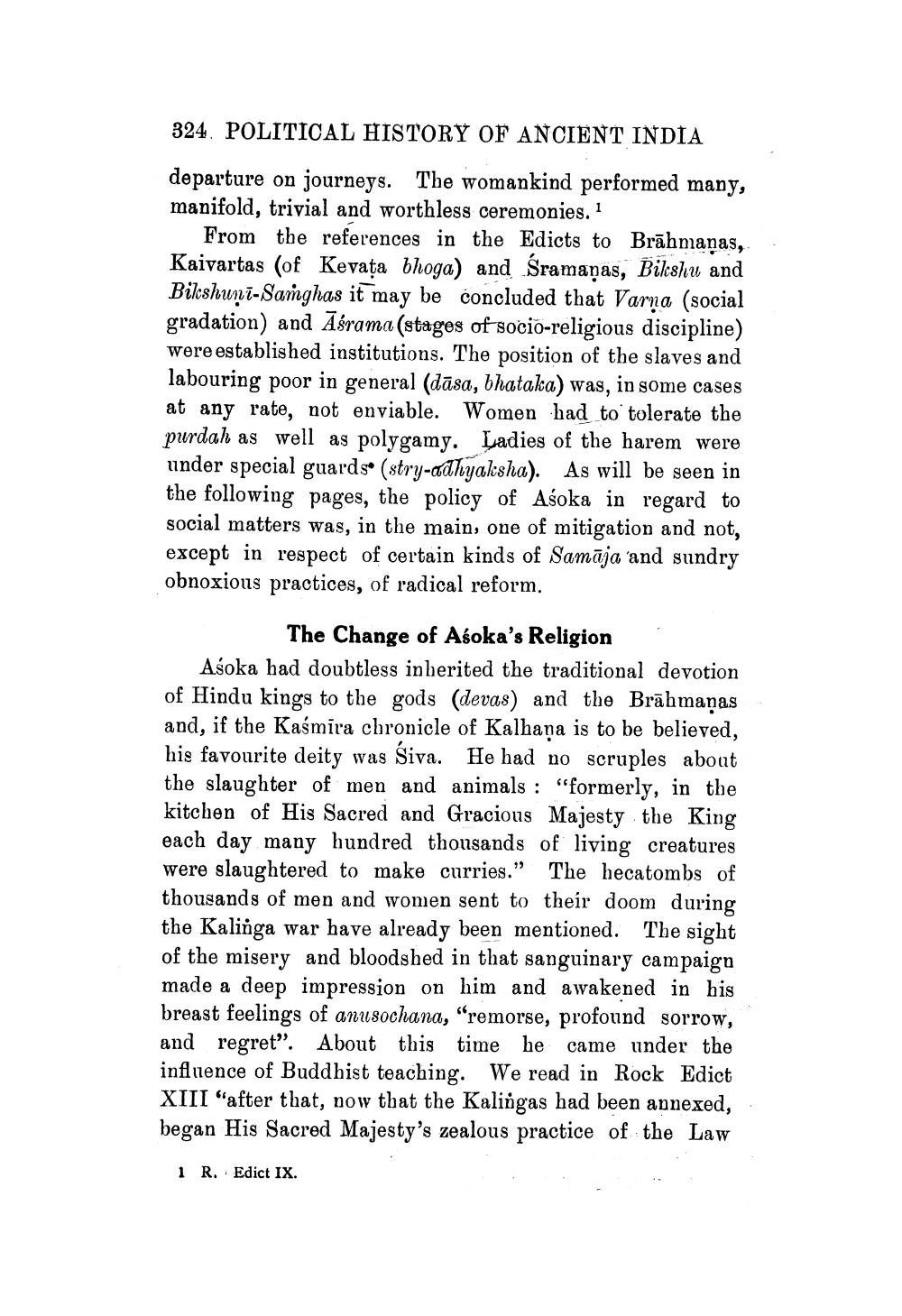________________
324. POLITICAL HISTORY OF ANCIENT INDIA
departure on journeys. The womankind performed many, manifold, trivial and worthless ceremonies.
From the references in the Edicts to Brāhmaṇas, Kaivartas (of Kevata bhoga) and Sramaņas, Bikshu and Bilshuni-Samghas it may be concluded that Varna (social gradation) and Āśrama (stages of socio-religious discipline) were established institutions. The position of the slaves and labouring poor in general (dāsa, bhataka) was, in some cases at any rate, not enviable. Women had to tolerate the purdah as well as polygamy. Ladies of the harem were under special guards (stry-adhyaksha). As will be seen in the following pages, the policy of Asoka in regard to social matters was, in the main, one of mitigation and not, except in respect of certain kinds of Samāja 'and sundry obnoxious practices, of radical reform.
The Change of Asoka's Religion Asoka had doubtless inherited the traditional devotion of Hindu kings to the gods (devas) and the Brāhmaṇas and, if the Kaśmira chronicle of Kalhana is to be believed, his favourite deity was Siva. He had no scruples about the slaughter of men and animals : "formerly, in the kitchen of His Sacred and Gracious Majesty the King each day many hundred thousands of living creatures were slaughtered to make curries.” The hecatombs of thousands of men and women sent to their doom during the Kalinga war have already been mentioned. The sight of the misery and bloodshed in that sanguinary campaign made a deep impression on him and awakened in his breast feelings of anusochana, "remorse, profound sorrow, and regret”. About this time he came under the influence of Buddhist teaching. We read in Rock Edict XIII "after that, now that the Kalingas had been annexed, began His Sacred Majesty's zealous practice of the Law
1 R. Edict IX.




